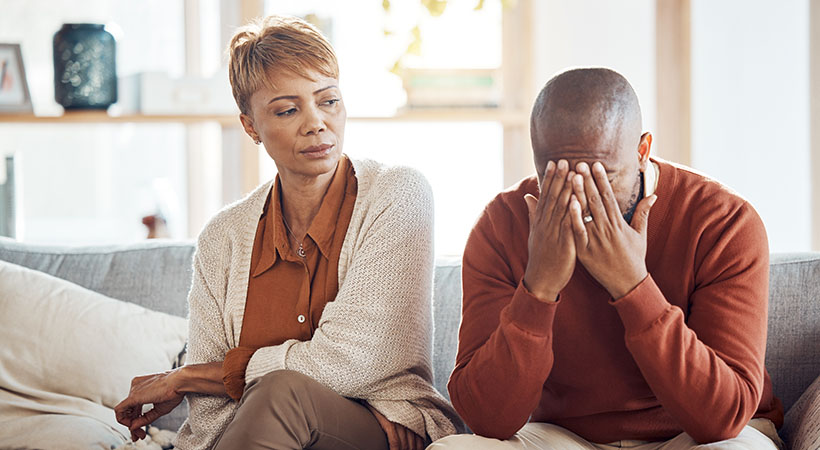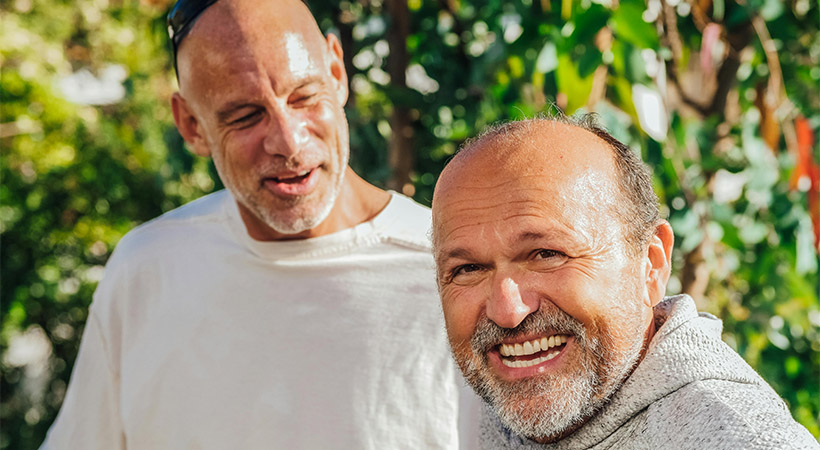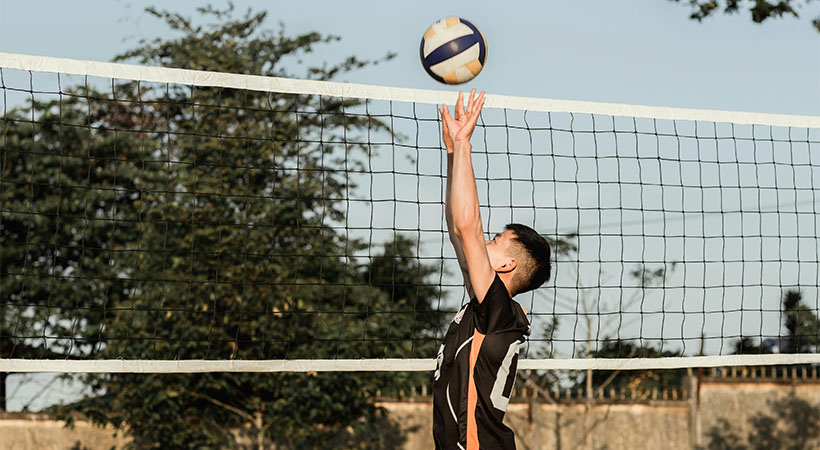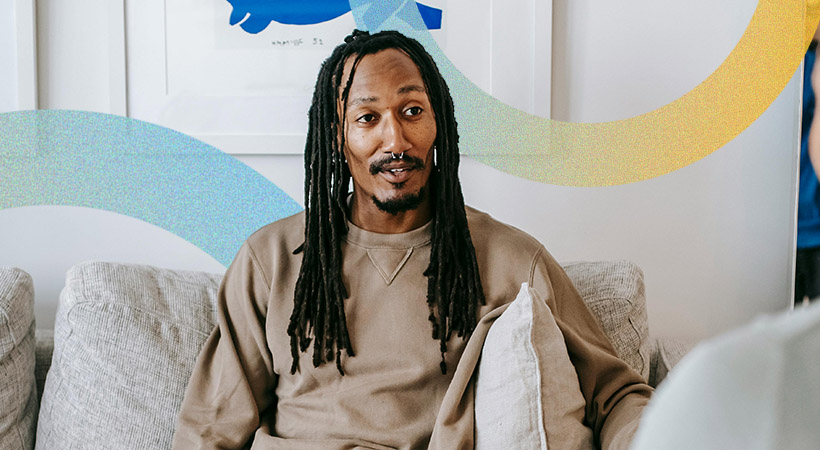If you didn’t come out in your teens or twenties, don’t worry — there’s still time!
Coming out can be one of the most significant decisions you can make as a gay or bisexual man. Being your most authentic self has huge positive long-term impacts on your relationships, your mental state, and your sense of well-being.
If you’ve spent years or even decades of your adult life living as straight identifying, what’s already a tricky process can be made even more complex.
“For years, I felt like I was living a version of myself that didn’t quite fit, and the process of coming out was about aligning my internal and external worlds.”
— Shaun, came out at 50
An increasing number of public figures, such as Wayne Brady and Sir Ian McKellen, are showing us that, as brave as it is coming out in your 30s, 40s, and beyond, there’s happiness on the other side.
We’ve spoken to a few guys closer to home who came out later in life and asked if they had any advice for guys looking to do the same. While none of them said it was easy, they all agreed it was one of the best decisions they’ve ever made.
Some names have been changed to protect privacy.
1. Expect a lot of opinions and questions
Coming out later in life means most people in your life have got to know you as straight. They’ll probably have a lot of different feelings about you coming out, and they’re often not shy about asking questions.
“I got asked some pretty intrusive questions at the start, especially at work. But once everyone got used to it, it was a non-issue.”
— Dai, came out at 41
People in your life will react differently to you coming out – and these reactions may change over time.
“There was an adjustment period for many; some I have sadly let go, and others have come to accept and celebrate this part of my life.”
— Shaun, came out at 50

If you’ve had heterosexual relationships or you’ve got kids, there may be people who feel hurt and angry with you. Others may also weigh in with some unwelcome opinions.
“I’d been married to a woman and we’d been talking about starting a family, so there were a lot of people who were confused [when I came out]. My ex-wife was actually great about it – I think she knew something wasn’t right. But other people close to us asked all sorts of questions – ‘did I ever love her?’, ‘was I cheating on her with men?’ things about my marriage vows – which was quite confronting.”
— Maurice, came out at 35
2. Your friendships may change
Coming out is likely to affect your circle of friends.
“Coming out reshaped my social circles, but in a way that allowed for more meaningful, genuine relationships.”
— Shaun, came out at 50

You’re expressing a side of yourself that you’ve never let out before. Some people will need time to adjust, and some may never. But you’re also opening yourself up to a whole new group of friends who know exactly what you’re experiencing and can help guide you through a challenging time.
“I made a lot of new friends in a short space of time, and it was really exciting to be going out with them. I think my existing friends sort of drifted away a bit. It wasn’t intentional. They just weren’t interested in going to gay stuff, which I understand. But it still hurt at the time.”
— Paulo, came out at 28
“Some of my friends already suspected I was gay and they were really supportive. I know others had trouble accepting it, especially when I got together with Steve, my partner. They’d known me as a married man with a wife and they found it hard to socialise with us as a gay couple.”
— Maurice, came out at 35
Coming out can be overwhelming and complicated. You may find that your regular sources of support, like friends and family, aren’t able to be there for you in the way you need.
The LGBTQ community can be a great source of support – there are plenty of other guys just like you who have come out at all stages of life and will be able to relate to your situation. Even if you don’t have any friends in the queer community, there are lots of groups you can join on social media for support, information and making new connections in your city. Just search ‘coming out’ or similar, plus your location.
“Initially, I felt like an outsider, uncertain of where I fit in, especially as a father and someone who had lived a heteronormative life for so long. But as I became more involved with groups like the Gay Fathers Group, I found a sense of belonging and purpose.”
— Shaun, came out at 50

Don’t forget about LGBTQ clubs and sporting groups as well. They’re a great place to meet and socialise with other LGBTQ people who share your interests, such as bowling, wrestling, or bushwalking.
“Joining the running team was probably the best thing I did after I came out. I’ve always been a runner, and it was a way for me to connect part of my ‘old’ life with my ‘new’ life after coming out. The team were really supportive and I’ve made a lot of really great friends.”
— Dai, came out at 41
4. Consider talking to a mental health professional
Getting help from a gay-friendly counsellor, psychologist, or other type of therapist can help you work through some of the tough emotions you may experience and be a sounding board through this period of change.
Talk to your doctor about setting up a mental health plan. If you’re eligible for Medicare, you can claim up to 10 visits per year.
“There were a lot of things I couldn’t talk to my friends and family about, because they were so involved with it all. I felt so selfish and ashamed. I felt like I’d been lying to everyone, including myself, for so long, and I honestly didn’t know who I was anymore. Talking to someone regularly to work through those feelings was a lifesaver.”
— Paulo, came out at 28

“There was so much disruption that I couldn’t think properly. Talking to my therapist helped me get some clarity. It helped me see that there were a lot of new beginnings in the middle of all the chaos.”
— Maurice, came out at 35
5. Remember you’re not alone
Coming out can feel overwhelming, but if it’s the right choice for you, you don’t have to do it on your own. Whether you’re questioning your sexuality or need help with how to approach people in your life about coming out, there is support available for you. If you are a gay father, consider joining community groups such as Gay Fathers Worldwide, started by Shaun and his partner who both came out in their fifties.
If you don’t know where to start or want to talk to someone confidentially, several national and state-based organisations can help you get the information and support you need. Discover these and others in our Partner Network.
ACT: Meridian
NT: NTAHC
NSW: ACON
QLD: Queensland Council for LGBTI Health
SA: Thorne Harbour Health SA
TAS: tasCAHRD
VIC: Thorne Harbour Health
WA: WAAC
Once you’ve overcome the obstacles, the fun really begins. You’ll have a brand new community at your doorstep, and you can even start dipping your toes into dating. It may seem daunting initially, but as the guys we spoke to show, coming out can be immensely rewarding, no matter your age.

Editor’s note: Choosing to come out is a deeply personal decision, and not everyone may feel safe or comfortable doing so. We acknowledge and respect the decision to not come out publicly, and encourage anyone who’d like support to reach out to the organisations above. If you’re in distress, these services are here to help:
- QLife: Call 1800 184 527 or use webchat for support every day, between 3:00pm and midnight.
- Beyond Blue: Call 1300 224 636 at any time, every day of the week.
- Lifeline: Call 13 11 14 any day of the week, 24 hours a day.
- Dale: For same-sex attracted men in straight relationships, Dale is a safe online space to get the info you need and connect with other men who get where you’re coming from